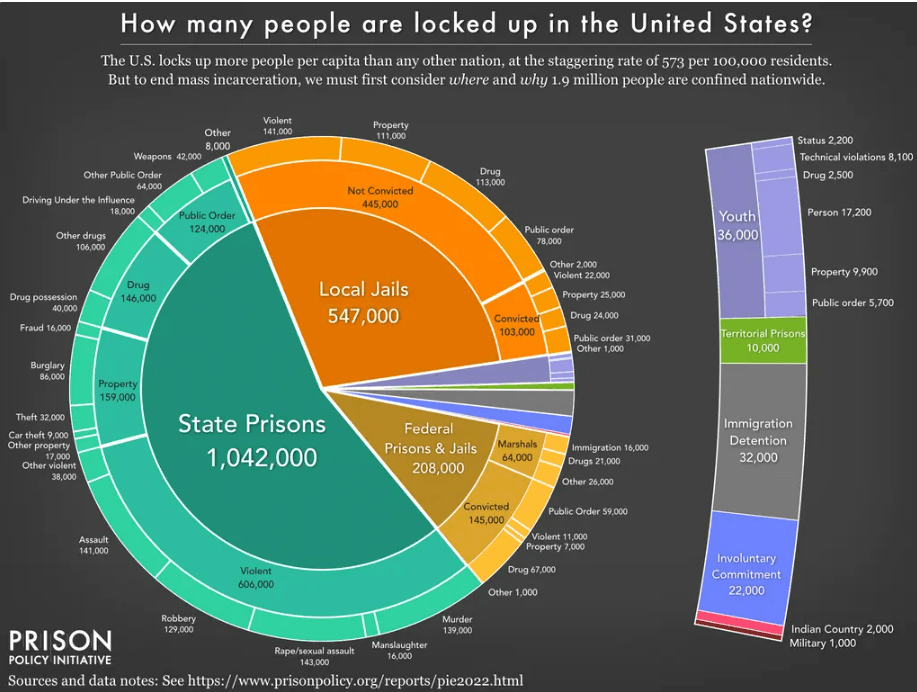Eight Myths About Mass Incarceration
Thousands of federal, state, local, and tribal systems hold almost 2 million people incarcerated in the U.S.

The United States incarcerates more of it's population than any country in the world. It is not only the country with the highest incarceration rate worldwide, but it is also home to the largest number of incarcerated persons. Roughly 1.9 million people were incarcerated in the U.S. in 2021.
So why has the United States made a big business out of mass incarceration? A recently released report from Prison Policy Initiative studied how many and where the largest numbers of incarcerated persons were, but also took a deeper look at the "why" of mass incarceration, examining 8 common myths perpetuated about the staggering incarceration rate in the U.S.
Some of those myths-
- Private prisons are the corrupt heart of mass incarceration: Less than 8% of all incarcerated people are held in private prisons; the vast majority are in publicly-owned prisons and jails. Still, many private industries and public agencies continue to profit from mass incarceration.
- Prisons are “factories behind fences” that exist to provide companies with a huge slave labor force: Only about 5,000 incarcerated people are employed by private companies, but prisons do rely on prisoners for food service, laundry, and other prison operations while paying low to no wages to that workforce.
- Crime victims support long prison sentences: Contrary to the popular narrative, most victims of violence want violence prevention, not incarceration. Harsh sentences don't deter violent crime and many victims believe that incarceration can make people more likely to engage in crime upon release.
Read more about the 8 myths of mass incarceration in a thorough, detailed, revealing report titled "Mass Incarceration: the Whole Pie 2022" from Prison Policy Initiative.










